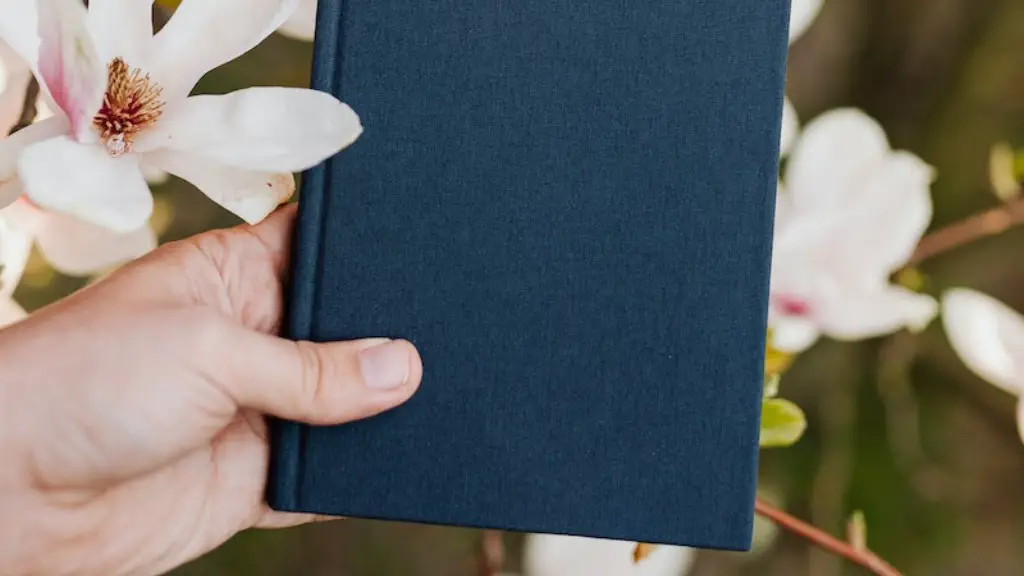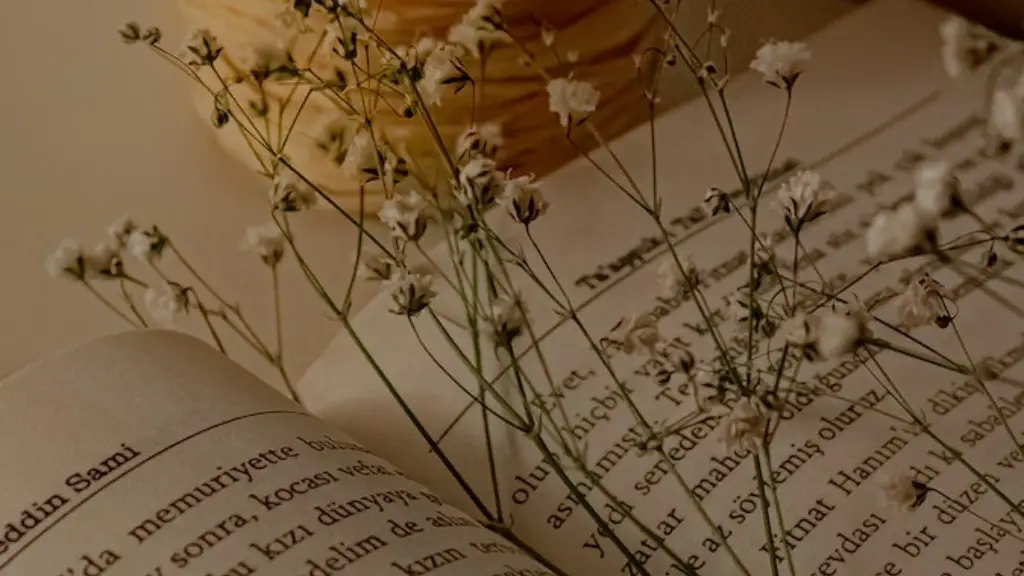Overview Of Poetry
Poetry is a form of literature that uses aesthetic and rhythmic qualities of language — such as phonaesthetics, sound symbolism, and metre — to evoke meanings in addition to, or in place of, the prosaic ostensible meaning. Drawing from the visual arts, vocal performance, storytelling, and even dance, poetry has developed over time from simple string songs to complex and powerful predictive works of contemporary literature. It is often written in the form of a story, verse, or in some cases, a single poem.
Poetry can be divided into two main categories — epic poems and lyrical poems. Epic poems tell the story of a people or an event, such as the classic works of Homer or the great Indian classic Mahabharata. They often include many characters and a story arc that follows a protagonist. Lyrical poems, on the contrary, emphasize more on emotions, themes, and feelings. They often address a particular human condition such as love, grief, hope, and joy. These poems are traditionally considered more personal than epic poems.
Input From Experts
The experts, who are engaged with the world of poetry, opine that poetry is a creative way to express oneself. It is often said to have a healing quality that helps us to cope with our emotions. Poetry is a medium of expressing complex feelings in simple yet powerful words. It is often used to tell stories, express love, and stir the emotions of the reader. For example, William Shakespeare’s sonnets were a perfect example of the way emotions can be expressed through poetry.
Poetry is also said to stimulate the imagination of the reader. It amuses, entertains, comforts, inspires, and challenges the reader to think. It simplifies complicated concepts and makes them easier to understand. Additionally, it often touches on topics that people have been trying to express but have been unable to do so fully, thus supplying the reader with a deeper understanding of the subject.
Experts also believe that poetry is great for connecting with people, whether it’s in a physical setting or online. It has the power to bridge the gap between different cultures and generations. Additionally, poetry can promote a sense of self-awareness, build relationships, and foster discussion. Moreover, it can be a source of inspiration and can help the poets break away from their everyday lives.
Structures Of Poetry
Poetry is structured in various ways such as rhyme, alliteration, metre, and stanza form. Rhyme is when two words have the same sound at the end of their syllables, and this is used to create a pleasing, rhythmic effect. Alliteration is when two words have the same sound at the beginning of their syllables, and this is also used to create a pleasing, rhythmic effect. Meter is the regular pattern of stressed and unstressed syllables in a line of a poem, and it is used to create a more rhythmic sound. Stanza forms are the patterns used to structure a poem.
The most common structure used in poetry is the sonnet. A sonnet is a fourteen-line poem usually composed in iambic pentameter, which is a line of ten syllables that alternates between unstressed and stressed syllables. This type of structure is used to give the poem a specific shape. Other structures include villanelle, ballad, ode, and haiku, amongst many others.
Interpretation Of Poetry
Interpreting the meaning of poems can be complicated, as poems often make use of symbolic language. Consequently, one has to be mindful of the poet’s intention when interpreting a poem. It is essential to look at each poem as an individual work of art and try to understand its meaning in the context of its content and structure.
To truly appreciate the subtleties of a poem, it is important to learn how to read poetry fluently. This involves being able to identify features such as metre, rhyme, alliteration, tone, and atmosphere. It also requires an awareness of the context in which the poem was written and the poet’s aims.
Moreover, one must also be aware of the different figures of speech and literary devices used in the poem in order to interpret the poem accurately. It is important to note that poems can often have multiple layers of meanings and can be prone to interpretation.
Deciphering Metaphors In Poetry
Metaphors are an important aspect of poetry. They are one of the common devices employed by the poet to convey an idea in a vivid and evocative way. A metaphor is a figure of speech in which two unlike things are compared to one another without using the words ‘like’ or ‘as’. For instance, “the mountain whispered secrets to the wind” is a metaphor indicating that the person speaking is aware of something that the wind is not.
In order to interpret metaphors accurately in poetry, one must first analyze the context and the poet’s intended meaning. Many poets use metaphors to represent complex themes, such as death and love. Additionally, metaphors can be used to personify abstract concepts such as hope, fear, and despair. A poet may also make use of metaphors to evoke certain emotions in the reader, such as awe and excitement.
Exploring Themes In Poetry
Poetry often explores a range of themes such as love, humanity, nature, and mortality. Poets may also use their poems to address broader themes such as politics, society, or even the universe. Poets use these themes to express their thoughts, feelings, and ideas, or to offer insights into the human condition.
Love is perhaps the most common theme in poetry. Love poems are often romantic or passionate, but they can also be wistful and heartbreaking. Nature is also a popular theme, with poems about landscapes, animals, and plants. Poets often use nature as a way to reflect on mortality and the wonders and beauty of the earth.
Other themes, such as death and mortality, are often explored in a philosophical manner, with the poet attempting to uncover the meaning and purpose of life. Additionally, poets may also explore themes of oppression, power, and society. These poems can offer insight and perspective on current issues.
Processing And Submitting Poems
For those who are looking to share their poetic works, there is no shortage of platforms and forums for poets both new and old. Submitting poems to magazines and journals is a great way to get one’s work out there and potentially get published. Many magazines and journals have specific submission guidelines, so it is essential to read them carefully before submitting. Additionally, the best and most successful poems often receive creative feedback from readers and writers alike.
Submitting poems to open-mic nights, which are events held by poetry organizers and venues, is also a great way to get one’s work seen and heard. This allows one to compare their poems with that of other poets and build relationships within the poetry community. Many poets also use social media as an effective platform for sharing their poems. A variety of platforms exist, such as Twitter, Instagram, and Facebook, all of which allow poets to engage with their audience in a more direct manner.
The Benefits Of Poetry
Apart from the obvious benefits of creativity and expression, poetry has many other benefits. Firstly, writing poetry can help build confidence and self-esteem as one expresses their thoughts and feelings through a medium that carries intrinsic value. Additionally, it can enhance communication skills and help one to find their own voice. Moreover, it can also be an effective means of stress relief.
Additionally, poetry has therapeutic value. Writing and reading poetry has the ability to help one cope with difficult emotions such as sadness, fear, and grief. Often, it can bring comfort to those who have experienced pain. Furthermore, it can help to inspire and motivate, and often serve as a source of strength and hope.
Conclusion
In conclusion, poetry is an art form which has been around for centuries. It is a creative way to express oneself, stimulate the imagination, and connect with people. Poetry can also be interpreted in different ways, depending on the perspective and context in which it was written. Additionally, there are various structures, forms, and themes which poets can use to write their poems. Finally, poetry has many wonderful benefits, both physical and emotional.





